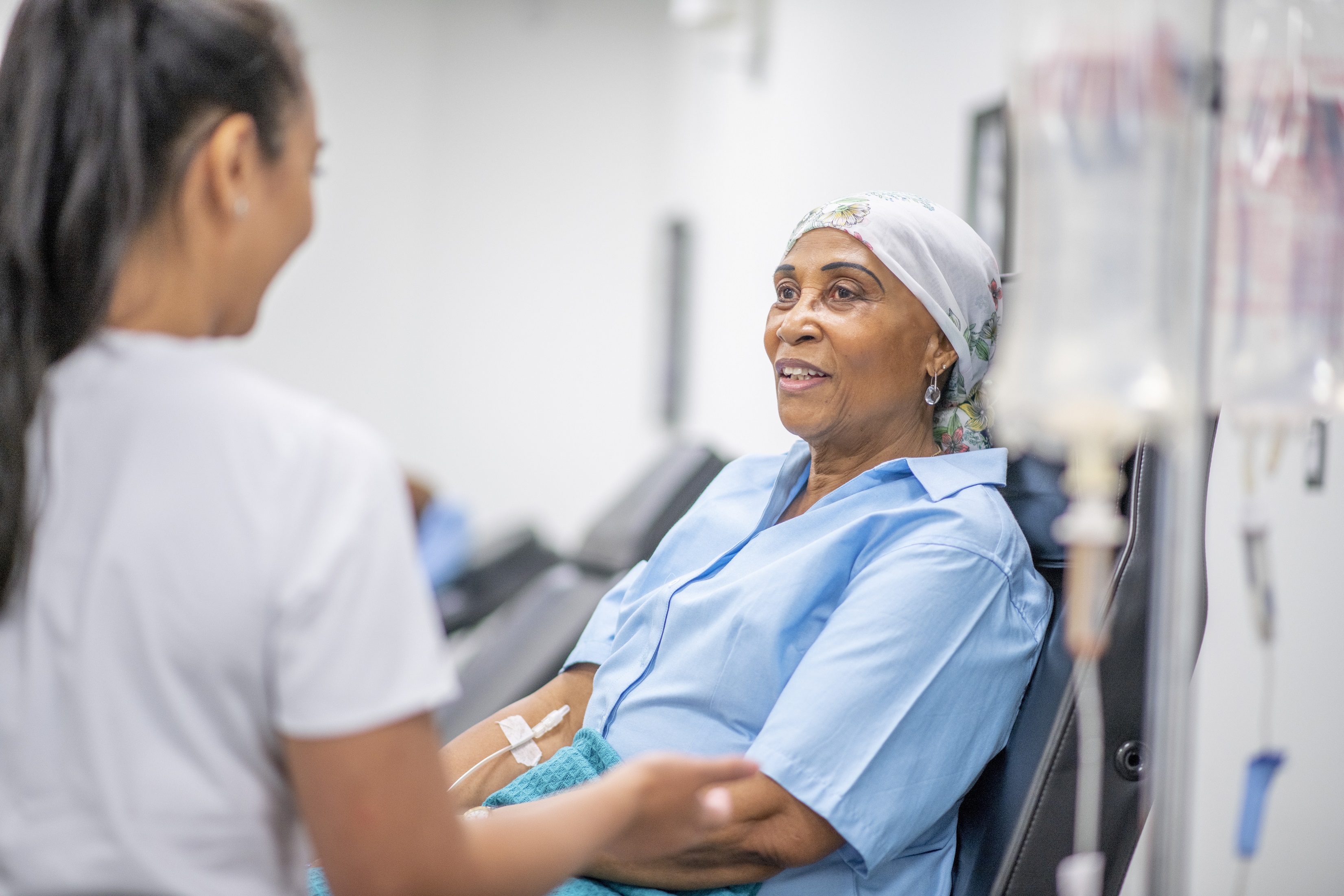Cancer Clinical Trials for Various Disease States
4 min read

Clinical trials can offer patients access to new medications that are not widely available but appear to have promising outcomes with potentially fewer adverse side effects.
“Participation in clinical trials doesn’t typically take patients away from any currently available therapies,” said Manojkumar Bupathi, MD, MS, a board-certified medical oncologist at Rocky Mountain Cancer Centers (RMCC). “And, usually with the newer drug therapies, the response rate, survival rate, and side effects can be better.”
Dr. Bupathi performs his clinical research through The US Oncology Network, a network of physicians who have conducted more than 2,000 trials with more than 500 active trials at any given time. Through US Oncology Research, our patients have access to clinical trials in all major cancer types. We recently celebrated the significant milestone of exceeding 100 FDA-approved cancer therapies.
“The way the new therapies are going is that there are more targeted agents, so it is more personalized in terms of treatment of their systemic cancer,” Dr. Bupathi said. “We contributed to the recent approval of sacituzumab govitecan-hziy (Trodelvy®), a drug used for bladder cancer.”
How Clinical Trials Help Cancer Patients
 Clinical trials expand the options and opportunities to seek out medications that are not yet FDA approved but could one day be the mainstays of treatment for their specific cancer type.
Clinical trials expand the options and opportunities to seek out medications that are not yet FDA approved but could one day be the mainstays of treatment for their specific cancer type.
Clinical trials were once seen as a last resort for cancer patients with a poor prognosis who had no other viable options, but clinical trials have diversified to include opportunities for participation for patients with any stage of cancer.
“It’s not only the metastatic cancer or the incurable cancers, but clinical trials exist for patients that have local disease, curable cancer,” Dr. Bupathi said. “There are always new drugs that are being looked at for every disease state. It’s not a generic one-size-fits-all solution.”
A Multidisciplinary and Patient-Centered Approach
Determining if a cancer patient is fit for a clinical trial depends on a patient’s unique situation. RMCC patients work with a multidisciplinary cancer team that consists of medical oncology, hematology, radiation oncology, surgical oncology, and palliative care.
RMCC does not expect referring providers to do any specific work-up, but sending up-to-date scans and routine blood work may be helpful when referring patients.
A patient’s situation not only includes their medical history but also their financial circumstances. This is another area where clinical trials can be beneficial. While new prescriptions often come with a higher cost for patients, clinical trial participation should not cost patients more than traditional cancer treatments.
“Now that’s highly variable, but whatever is considered standard of care is usually covered by their insurance,” Dr. Bupathi said. “Oftentimes, the drugs themselves are provided because it is a clinical trial, but that depends on the trial.”
Positive Change in Cancer Clinical Trials
We are in the age of what could go down in history as a point of revolutionary advancement for cancer treatment. Clinical research studies are now opening the door to many more options and are changing the landscape for cancer treatments. With the integration of genomics and molecular pathways, cancer clinical trials are rapidly evolving and increasingly personalized to the patient’s specific type of cancer. Researchers and oncologists are turning to more selective therapeutic agents over nonselective cytotoxic agents of the past.
“Genomics is still an evolving field, but it has tremendously changed how we treat cancer,” Dr. Bupathi said.
Genomics has also changed how other cancers are treated. Dr. Bupathi provides an example, stating that there has been a big shift in looking for genetic alterations in colorectal and bladder cancer patients. A small subset of patients may have these genetic variants and can be given medications that specifically target that genetic alteration.
“Through this personalized approach, we can get better responses than traditionally used chemotherapy or other agents like antibody drug conjugates,” Dr. Bupathi said. “It’s really changing how we think about cancer as well as how we treat cancer.”
If a patient shows evidence of disease progression or needs to change therapies, Dr. Bupathi prefers to get a biopsy to help direct treatment. This process allows him to better understand how the cancer is changing.
“It’s kind of like Darwinism for the cancer: You want to see which cells are surviving and which are not, and then try to use drugs that could potentially target the areas that are remaining,” Dr. Bupathi said. “There are many classes of drugs that are being looked at, and a lot of therapies are being used earlier and earlier to try to go from a first line to a second line cancer diagnosis.”
Promising New Cancer Treatments on the Horizon
- Antibody-drug conjugate (ACD) are medications chemically attached to monoclonal antibodies that specifically target and bind to proteins or receptors in cancer cells to destroy the cancerous cell while sparing healthy tissue.
- BiTEs (bi-specific T-cell engagers) are immune-oncology medications that utilize the patient’s T-cells to destroy cancerous cells. BiTEs are comprised of two single-chain variable fragments. One single-chain variable fragment binds specifically to a molecule associated with a patient’s T-cell and the other single-chain variable fragment binds to an antigen associated with the cancer cell.
- CAR T-cell therapies (chimeric antigen receptor T-cell therapies) are a type of treatment that involves altering the patient’s T-cells in the laboratory to allow them to destroy cancerous cells. This alteration is done by adding a gene for a receptor capable of binding to a protein in cancer cells called a chimeric antigen receptor to a patient’s T-cells in a laboratory, multiplying those altered CAR T-cells and then giving the CAR T-cells back to the patient via infusion.
- Immunotherapies combined with targeted agents are combination treatments. Immunotherapy agents, which modulate the immune response, could include monoclonal antibodies, T-cell transfer therapy, immune checkpoint inhibitors, immune system modulators, or treatment vaccines. Targeted agents are specifically aimed at impeding biochemical and molecular pathways necessary for cancer cell survival and could include small molecule medications or monoclonal antibodies.
New medications and targeted therapies bring forth hope for patients with cancer. Having access to clinical trials may equate to improved responses to therapy, potentially fewer side effects and—most importantly—a greater chance of beating cancer for your patients. Genomics and molecular pathways have forever changed medicine and appear to be key components in unlocking how to better care for patients with cancer.
To refer a patient to RMCC or to learn more about clinical trials, please visit RockyMountainCancerCenters.com/for-medical-professionals.